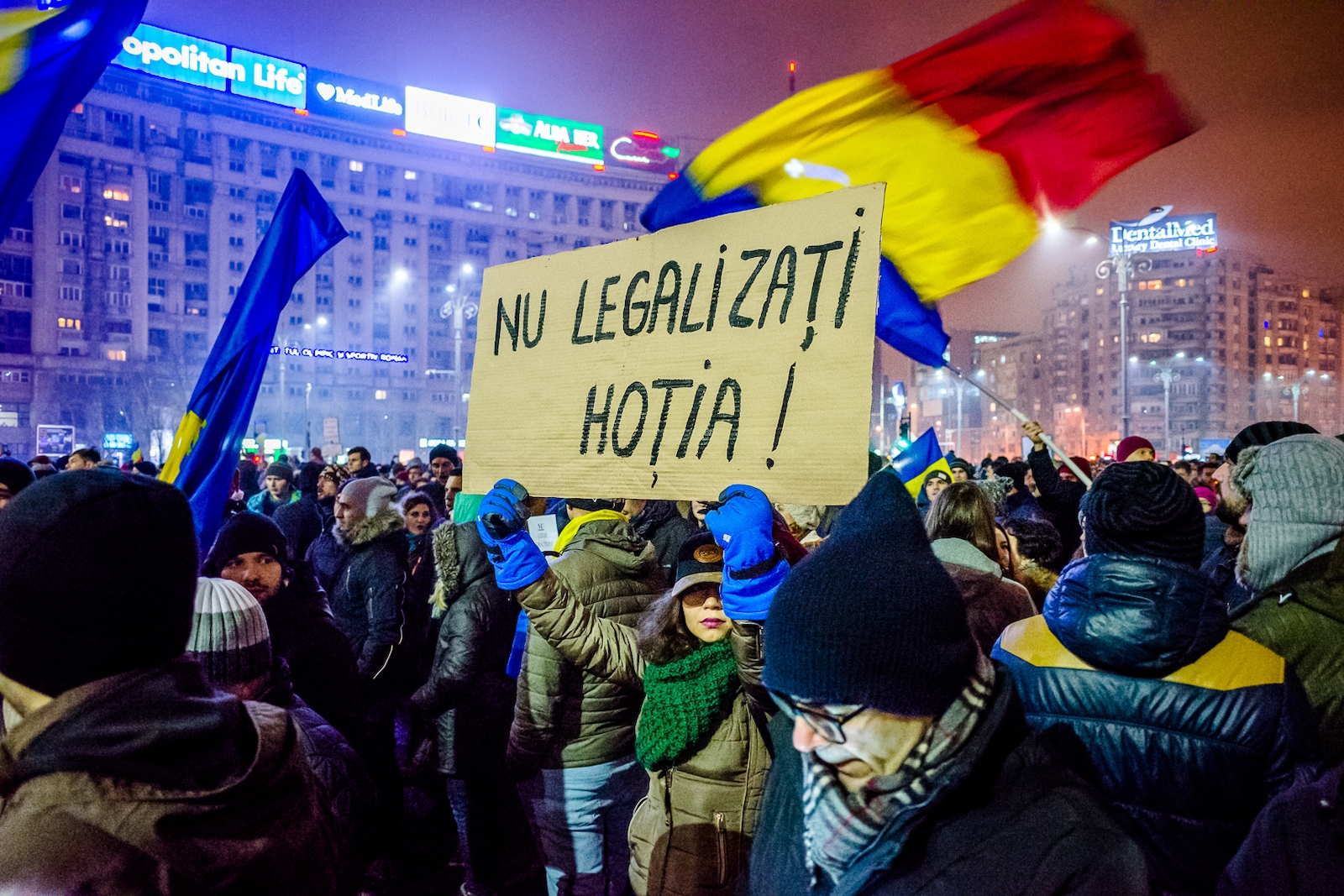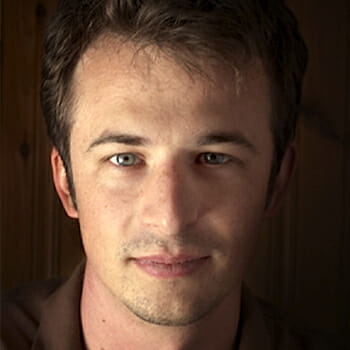
Romania and Bulgaria are Corrupt. What is Being Done about It?
For the second time this year, Romania is being swept by street protests over the fate of its anti-corruption fight. Thousands of people recently protested in Bucharest and other major cities against the government’s attempts to tie the hands of justice. The stakes are high: officials are working on a law that would enable the Minister of Justice to hire or fire top prosecutors, who are currently named by the president. The ruling Social Democratic Party (PSD) is particularly invested in sapping the fight against corruption, as its members have made up the bulk of corruption convictions. The same law will also allow criminally convicted individuals (such as PSD leader Liviu Dragnea) to run for president.
Perhaps most disconcertingly, the measures could hamstring the National Anti-Corruption Directorate (DNA). Since onetime Minister of Justice Monica Macovei passed laws ensuring the independence of the Romanian justice system, current DNA chief Laura Codruta Kövesi has led the Directorate to record numbers of prosecutions targeting high-level graft since 2013. The office prosecuted over 1,000 officials in 2014 alone, including onetime Prime Minister Adrian Nastase. In 2015, it indicted heavyweights like the Bucharest mayor, Sorin Oprescu, and Premier Victor Ponta.
With that in mind, it comes as no surprise that the corrupt political class in Bucharest is trying to weaken the DNA and protect its own interests. The public, however, has pushed back several times this year by taking to the streets in large numbers. By far the most impressive displays came in February when hundreds of thousands protested for weeks in freezing temperatures in the country’s main cities against an emergency decree that would have effectively decriminalized abuse of power. Dragnea and his allies were inevitably forced to bow to the street and abrogate the decree.
The state of transparency in Romania is obviously of paramount interest to the European Union (EU). Together with neighboring Bulgaria, Romania joined the EU on 1 January 2007 – and since then, the EU’s two poorest members have constantly been compared in terms of their judicial reforms, democratic progress, and measures to tackle corruption. The current standoff over Romania’s prosecutors goes to show just how much Romania’s political culture has evolved in the past decade. Disgusted with their elected politicians, many Romanians now pin their hopes on the judiciary system to create a better and more prosperous polity. This has left observers watching from across the Danube to wonder: how can Bulgaria generate the same amount of civic energy and public resources to battle corruption?
The Romanian experience highlights some of the critical steps Bulgarians still need to take, like establishing a fully independent judiciary and clear legislation defining corruption offenses. Even though Bulgaria benefitted from the same window of opportunity in the run-up to EU accession, its leaders didn’t use the occasion to strengthen the rule of law in the same way.
There are other factors as well. Bulgaria has a small, aging population, and broad swathes of the population are either employed by or reliant on state or state-owned companies. Despite that, there is obviously a grassroots desire for change: remember that thousands of Bulgarians turned out to protest against government corruption for months in 2013 and ultimately toppled the government. Turning those spontaneous movements into lasting change requires broader civic vision and clear leadership.
Every year, Bulgaria loses somewhere between 14 and 22% of its GDP ($7.3 to $11.4 billion) due to corruption. This has led to the emergence of the EU’s biggest black market and a €1 billion annual drain on the state budget. Being the poorest EU member state also means Bulgarian citizens also have to contend with subpar public services.
The business environment would also benefit greatly from concerted reform efforts. Before the global financial crisis, annual foreign direct investment (FDI) in Bulgaria and Romania were roughly equal. According to the World Bank, $13.9 billion entered Bulgaria in 2007 compared to $13.7 billion in Romania in 2008. Both tumbled from 2008, but Romania’s recovery since 2011 has been stronger and more consistent. Bucharest has seen FDI inflows grow every year since, reaching a high of $5.37 billion in 2016. Sofia, by contrast, is doing worse now than it was at the lowest point of the crisis in 2010. The $1.27 billion in FDI that entered Bulgaria in 2016 represents the lowest rate of investment since 2002.
Bulgaria’s dramatic drop from 2009 is mainly attributed to the collapse of two Bulgarian banks, but the reticence on the part of European and international companies to reinvest is largely a result of entrenched local interests that discourage honest business. Regulatory reform and tougher controls on corrupt practices could go a long way towards improving the broader investment environment. For instance, the permit-issuing process for manufacturing companies entering the Bulgarian market should be streamlined and made less vulnerable to bureaucrats’ demands for bribes.
The European Commission has also pointed the finger at the unparalleled influence (at least within the EU) of Bulgarian organized crime over economic sectors. Standing up to those outside pressures would lift Bulgaria’s rankings of 110th out of 138 countries for judicial independence and 115th regarding property rights and assuage foreign companies considering investments.
Both Bulgaria and Romania are still under the European Commission’s Cooperation and Verification Mechanism (CVM), much to the ire of national leaders, tired of being seen as second-tier members ten years after joining. As such, improving the rule of law would not just persuade the EC to lift the CVM, and finally award equal treatment to the two countries, but would also be a major step towards securing much-needed foreign investment. The fight against corruption is not yet won, but there is light at the end of the tunnel.

